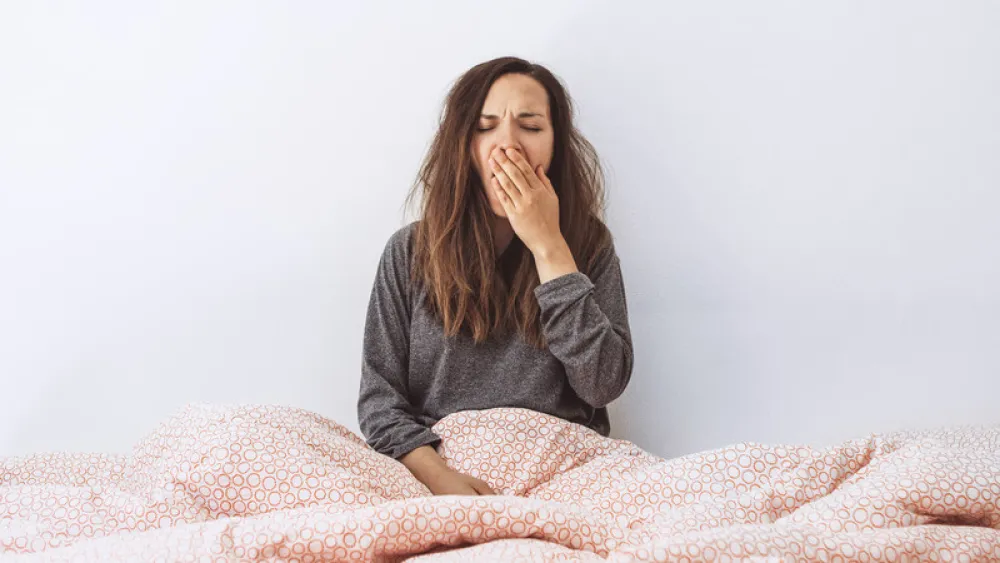




Healthy Lifestyle
Breaking Down Common Sleep Aids: Do They Work, and Are They Safe?
Published: March 10, 2021

It’s a problem many people face: not getting a good night’s sleep.
Sleep issues can be caused by any number of factors, including chronic health problems. In the past year alone, the COVID-19 pandemic has led to more people experiencing issues with insomnia.
In the long term, getting too little sleep has been linked heart disease, diabetes and other health issues. Regardless of the sometimes serious causes and consequences of sleep problems, many people turn to over-the-counter medications or supplements in an effort to get more or better rest.
Here’s a look at four of the more popular options available without a prescription.
Common Over-the-Counter Sleep Aids
Diphenhydramine
This antihistamine is found in many sleep aids and allergy medications, including Benadryl. Because of its sedating effects, it’s commonly used in products claiming to support better sleep.
When scientifically studied, however, there’s little evidence that diphenhydramine helps with insomnia. It can cause sedative effects the following day, which can be more severe in older people. Diphenhydramine can also reduce alertness and cognitive function, as well as cause dry mouth and blurred vision.
Bottom line: This drug is not recommended for treating sleep issues.
Common Herbal Products and Supplements
The herbs valerian and chamomile – and products containing them – are often touted as natural sleep aids. How effective they are, however, is unclear.
Valerian has been studied, but there’s little evidence of its effectiveness. It carries the risk of adverse effects, including headaches and itching. Short-term valerian use hasn’t been proven unsafe, but there’s no rigorous scientific research about its long-term safety.
Chamomile, often in the form of tea, is also commonly used. As with valerian, there aren’t a lot of scientific studies to confirm its safety or effectiveness. However, some people can react adversely, particularly those with a history of plant allergies such as ragweed. Chamomile can also interact with some blood thinners and medications taken by transplant patients.
Melatonin helps set your internal clock and prepare your body for sleep. Your body produces this hormone naturally, but supplemental use has gained popularity recently. Studies show no safety issues when it’s used for three months or less, but it isn’t recommended for treating insomnia in most patients. It should also be noted that the recommended dose, 0.5 milligram, is lower than what’s generally available. People trying melatonin for short-term sleep help should cut a standard 1 milligram tablet in half.
 There’s Less Regulation, so Look Closely
There’s Less Regulation, so Look Closely
Valerian, chamomile and melatonin are considered dietary supplements and therefore can be purchased in any dose without a prescription. The Food and Drug Administration has little or no role in their regulation, and product quality can be questionable. For example, Consumer Reports recently reviewed products containing two other supplements – turmeric and echinacea – and found that many had lead and bacterial contamination. Several products also had less than the purported amounts of the key active compounds.
It’s imperative that consumers make thoughtful choices about any supplements they take. Look for one of the following labels that indicates a product has met standards for supplements: USP (U.S. Pharmacopeia), NSF International or Consumerlab.com. But remember: While these organizations do test and verify or certify supplements, a label doesn’t guarantee a product is free of potential adverse effects.
Better yet: Include your doctor in any decision to begin taking medication or supplements.
Tips for Better Sleep
Before turning to medication or supplements, try these approaches:
- Exercise in the morning; working out close to bedtime can interfere with your efforts to fall asleep
- Keep a consistent sleep schedule by getting up and going to bed around the same time, even on weekends
- Avoid television, computer and phone use near bedtime
- Try relaxing activities, such as reading or listening to music in the hours before bedtime
- Make your bedroom cool, dark and quiet
- Limit sleep interruptions, such as having your smartphone at the bedside or allowing your pet in bed with you
- Avoid caffeine and alcohol later in the day
Sleep isn’t a luxury. If simple measures are ineffective and getting proper rest is an ongoing issue, seek help from a medical professional. They can help you develop an effective treatment plan.
More Resources
- Read more from Consumer Reports on smart supplement shopping
- Learn more about Methodist Health System’s sleep services


